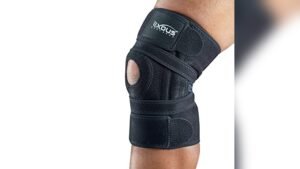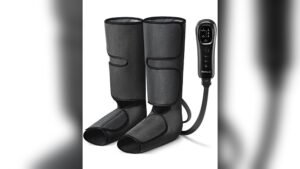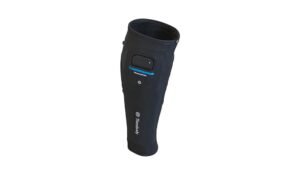Have you ever opened your gym bag and been greeted by an unpleasant odor? You’re not alone. This common issue can turn a fitness routine into a less appealing task. Let’s dive into keeping that gym bag smelling fresh, ensuring hygiene and comfort!
Table of Contents
ToggleUnderstanding the Causes of Gym Bag Odor
Sweat and Moisture: The Culprits
It’s simple science. Sweat and moisture are perfect breeding grounds for bacteria, leading to those nasty odors. This is where the funk in your gym bag begins. The following five characteristics are usually notable.
- Sweat accumulation in gym bags creates a moist environment, ideal for bacterial growth.
- Moisture in gym bags, often from damp workout clothes, fosters odor-causing bacteria and mold.
- Poor ventilation in closed gym bags traps sweat and moisture, intensifying unpleasant smells.
- Residual body sweat on gym equipment and accessories contributes to the overall odor in gym bags.
- Inadequate drying of gym wear and towels before packing increases moisture levels, worsening bag odor.
More Than Just Sweat
The smell of your gym bag is affected by more than just sweat. To begin, germs from the skin and used gym gear can spread to things in the bag and make it smell worse.
Second, soaps, deodorants, and other body care products on your skin mix with sweat to make a smell that is all its own and often more substantial.
Third, food or drink spills, often in gyms, can worsen the smells if not cleaned up quickly. Besides, the gym bag’s material can soak up and hold smells over time, especially if it needs to be cleaned more often.
Lastly, if wet gym clothes and towels aren’t left to dry, the wetness can cause mold and mildew to grow, which makes the smell even worse. These combine to create a gym bag that smells more complicated than sweat.
Preventive Measures/gym bag odor eliminator
Choosing the Right Gym Bag
Selecting the right gym bag is crucial in combating gym bag odor. Firstly, opting for bags made with breathable materials, such as canvas or ventilated mesh, helps to reduce moisture buildup by allowing air circulation.
Secondly, bags featuring antimicrobial properties can significantly hinder the growth of odor-causing bacteria and fungi.
Thirdly, choosing a bag with separate compartments allows for better organization and isolation of damp clothes or shoes, preventing moisture spread.
Additionally, gym bags with easy-to-clean surfaces enable regular cleaning, essential for odor control. Lastly, bags with built-in ventilation systems, such as air vents or moisture-wicking linings, provide an added advantage in keeping the bag fresh and odor-free. These features collectively contribute to maintaining a cleaner, more hygienic environment within the gym bag.
Focus on the Ventilation
A well-ventilated bag is essential. It allows the air to circulate, reducing moisture and, in turn, the odor. Let’s explore the importance of ventilation related to bad smells from gym bags.
Odor Dispersion: Ventilation helps spread the strong smell of sweat and wetness in the gym bag. If there isn’t enough airflow, these smells can get more intense and unpleasant.
Getting rid of moisture: Sweaty clothes and gear in your gym bag can cause a bad smell. By drying out the wetness, ventilation helps stop the growth of bacteria and mold, which are the leading causes of bad smells.
Stopping Bacterial Growth: Bacteria like it when it’s warm and damp. Letting air flow through the gym bag and its contents lowers the temperature and humidity bacteria need to grow. This makes it less likely that smells will form.
Durability of Gear: Good airflow not only keeps gym gear fresh but also keeps it in good shape. Fabrics and materials can break down over time if wet, so keeping them dry through air is essential.
Health Benefits: Using a gym bag with good airflow can benefit your health. Mold and germs that grow in damp places can cause skin infections and allergic reactions. This lowers the risk of those things happening.
The Role of Moisture-Wicking Materials
Moisture-wicking materials help move sweat away from the body and to the fabric’s surface, where it can dry more quickly. This keeps gym bags from getting too wet and smelling bad.
These materials stop bacteria and mold from growing by preventing wetness retention. Bacteria and mold are the main reasons why gym bags smell bad.
When stored in a gym bag, clothes made from moisture-wicking fabrics stay dry and fresher for longer, making it much less likely that they will develop strong smells.
Regular Cleaning and Maintenance
Regular cleaning of your gym bag is crucial. Let’s break down the steps to clean your bag effectively.
Gets Rid of Things That Cause Smells:
Cleaning regularly helps eliminate sweat, dirt, and germs that build up over time and are the leading causes of smells.
Stops Mold and Bacteria Growth:
If you clean and air out your gym bag often, you can prevent mold and bacteria from growing since they like dark, damp places.
Keeps the Bag in Good Shape:
Regular care keeps the gym bag in good shape and free of damage that could trap smells.
Cleanliness:
Having a clean gym bag is also good for your health. This helps keep germs and bacteria from spreading from the gym to your home or car.
Cleaning the gym bag often can make it last longer by stopping the buildup of things that could damage the material.
How Often Should You Clean?
The frequency of cleaning your gym bag depends on how often you hit the gym. More workouts, more cleaning!
Odor-Neutralizing Solutions
Various sprays and deodorizers are designed for gym bags. Let’s explore their pros and cons.
Natural Remedies
Simple household items like baking soda or coffee grounds can work wonders. They naturally absorb odors, leaving your bag smelling fresher.
Conclusion
You keep your gym bag smelling fresh and blend the proper practices and products. Regular cleaning, intelligent packing, and using the right deodorizers can make a difference. Stay consistent, and your gym bag will thank you!
Frequently Asked Questions
1. What’s the Best Natural Deodorizer for a Gym Bag?
Baking soda and coffee grounds are great natural options. They absorb odors effectively without the use of chemicals.
2. How Often Should I Clean My Gym Bag?
It depends on your gym frequency. A general rule of thumb is to clean it once every couple of weeks or more frequently if used daily.
3. Can Essential Oils Help with Gym Bag Odor?
Absolutely! Essential oils mask odors and have antimicrobial properties that help neutralize smells.
4. Are commercial deodorizers safe for all gym bags?
Most are, but it’s always a good idea to first check the label for any specific material restrictions and test in a small area.
5. What’s the Best Way to Deal with Sweaty Clothes in a Gym Bag?
Using separate compartments or moisture-wicking bags helps. Also, try to air or wash sweaty clothes as soon as possible







